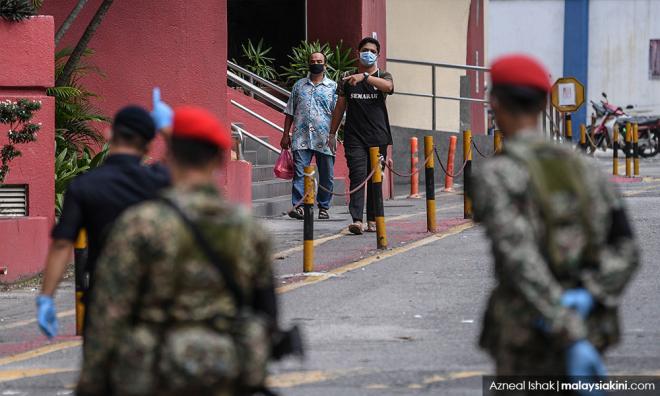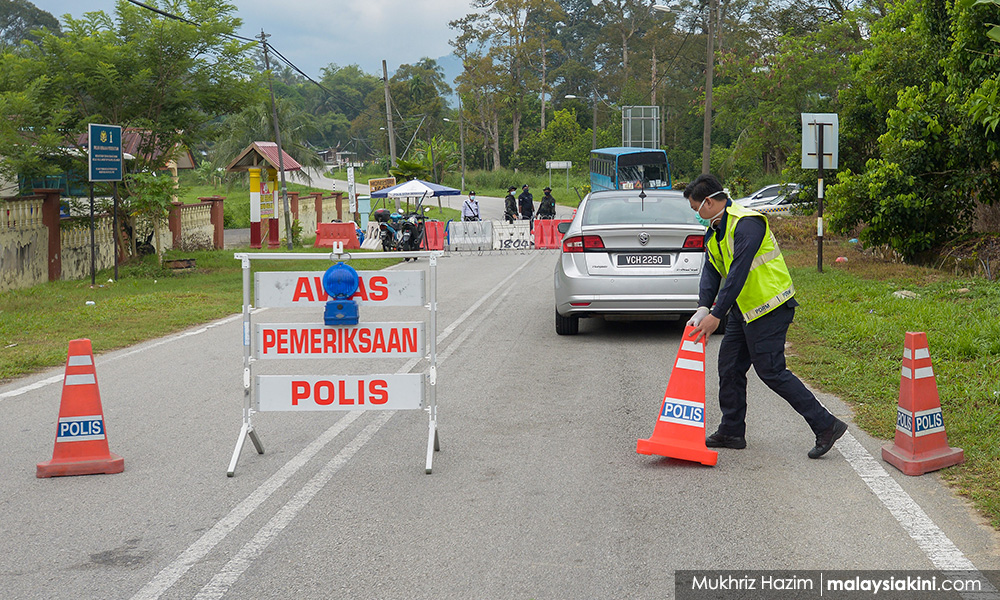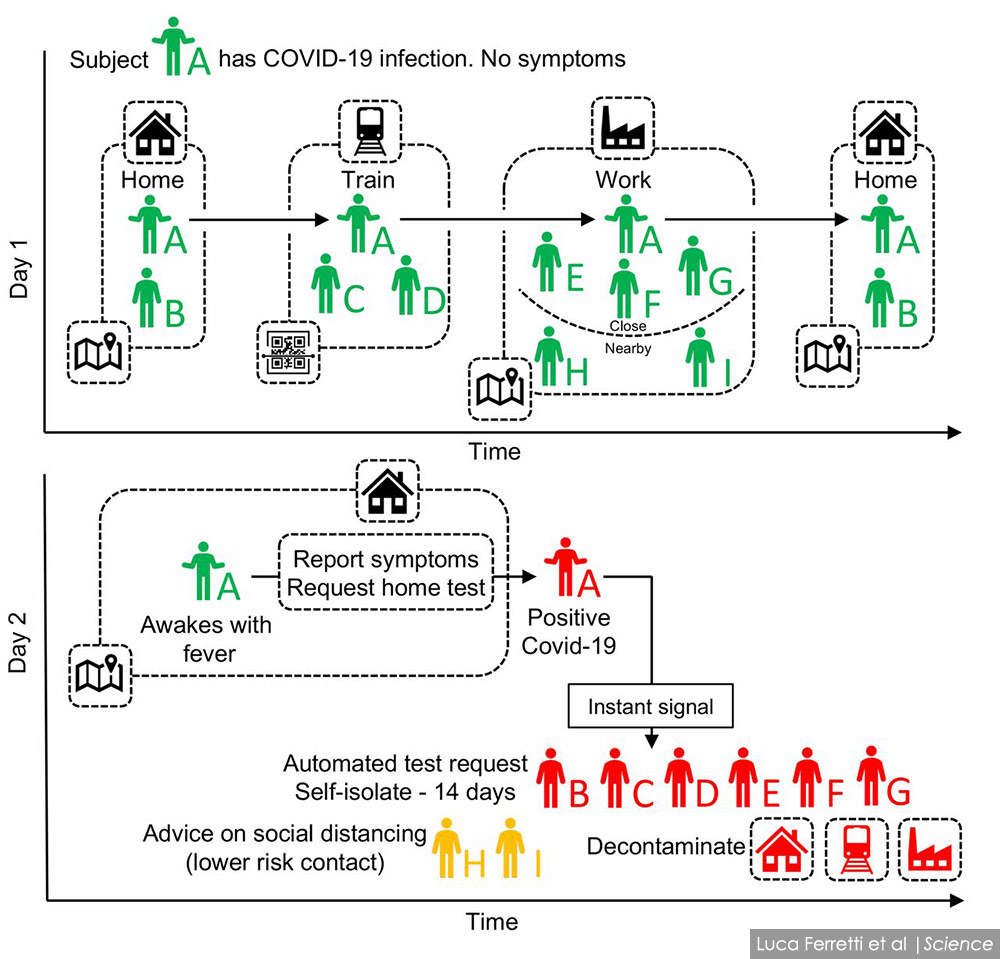
CORONAVIRUS | The Covid-19 pandemic is spreading too fast for traditional methods of tracing and isolating suspected cases to keep up, argued a group of University of Oxford researchers.
This is based on the group’s mathematical model of the disease’s spread, which examined the success rate needed - in both isolating symptomatic cases and subsequently quarantining their close contacts - to contain the spread of the disease.
They found that the strategy is unlikely to succeed with manual contact tracing methods, even if the process took as little as three days.
These odds are markedly improved if contact tracing can be done instantaneously, and the researchers argued that mobile phone apps might do the trick.

“Delays in these interventions (tracing and isolation of cases) make them ineffective at controlling the epidemic: traditional manual contact tracing procedures are not fast enough for SARS-CoV-2 (the virus that causes Covid-19).
“A delay from confirming a case to finding their contacts is not, however, inevitable. Specifically, this delay can be avoided by using a mobile phone app.
“A mobile phone app can make contact tracing and notification instantaneous upon case confirmation.
“By keeping a temporary record of proximity events between individuals, it can immediately alert recent close contacts of diagnosed cases and prompt them to self-isolate,” said the group of nine researchers.
They said digital contact tracing should be adopted alongside preventive measures such as social distancing, better hand and respiratory hygiene, and regular decontamination.
Countries such as China, South Korea, and Singapore already adopt this approach, the study’s authors noted, which could reduce a week’s work of contact tracing to an instant.

“The economic and social impact caused by widespread lockdowns is severe. Individuals on low incomes may have limited capacity to remain at home, and support for people in quarantine requires resources.
“Businesses will lose confidence, causing negative feedback cycles in the economy. Psychological impacts may be lasting.
“Digital contact tracing could play a critical role in avoiding or leaving lockdown,” they added.
Their paper "Quantifying Sars-CoV-2 transmission suggests epidemic control with digital contact tracing" has been peer-reviewed and published in the prestigious journal Science yesterday.
The team comprises Luca Ferretti, Chris Wymant, Michelle Kendall, Lele Zhao, Anel Nurtay, and Lucie Abeler-Dörner at University of Oxford’s Big Data Institute; Michael Parker at the university’s Wellcome Centre for Ethics and the Humanities and Ethox Centre; David Bonsall at the Oxford University National Health Service Trust; and Christophe Fraser at the university’s Wellcome Centre for Human Genetics.
Their mathematical model also estimates that between a third and half of all Covid-19 transmissions come from people who have been infected, but are still in early stages of the infection and have yet to begin showing symptoms of the disease.
This means pre-symptomatic Covid-19 transmissions are almost enough to sustain an epidemic on its own, the researchers said, in contrast to 2002-2003 Sars outbreak where the corresponding estimate was "almost zero".
“(This is) immediately telling us that different containment strategies will be needed for Covid-19,” they said.

The group also laid out ethical considerations for using the app, pointing out that its successful use relies on public trust and confidence.
Among others, they said the use of the application should be overseen by an inclusive and transparent advisory board that includes members of the public, and should have a set of agreed-upon and published ethical principles.
There should be guarantees of equity in accessing the app and treatment, and the app’s algorithm should be transparent and auditable.
“It is noteworthy that the algorithmic approach we propose avoids the need for coercive surveillance, since the system can have very large impacts and achieve sustained epidemic suppression, even with partial uptake.
“People should be democratically entitled to decide whether to adopt this platform. The intention is not to impose the technology as a permanent change to society, but we believe it is under these pandemic circumstances it is necessary and justified to protect public health,” they said.
Previously, the World Health Organisation (WHO) Western Pacific regional director Dr Takeshi Kasai said tracking, isolating, and quarantining patients will not completely eliminate the risks posed by Covid-19.

Instead, it buys time for countries to prepare for large scale community transmission of the disease, and countries must also find ways to get its society up and running again.
Meanwhile, Science, Technology and Innovation Minister Khairy Jamaluddin had said that the government would launch a smartphone app that could track the movement of Malaysians to help curb the spread of the disease.
Germany is looking to roll out a tracking app similar to Singapore’s TraceTogether app within weeks, which records Bluetooth “handshakes” between smartphones in close proximity instead of location data.
In Singapore’s implementation, the app can be used to identify people who had spent at least 30 minutes within two metres of a Covid-19 patient by exchanging a randomly assigned ID.
To ensure privacy, the data only stored locally on the device for up to 21 days, and will not be accessed unless the user is identified as a close contact.

-Mkini


No comments:
Post a Comment
Note: Only a member of this blog may post a comment.